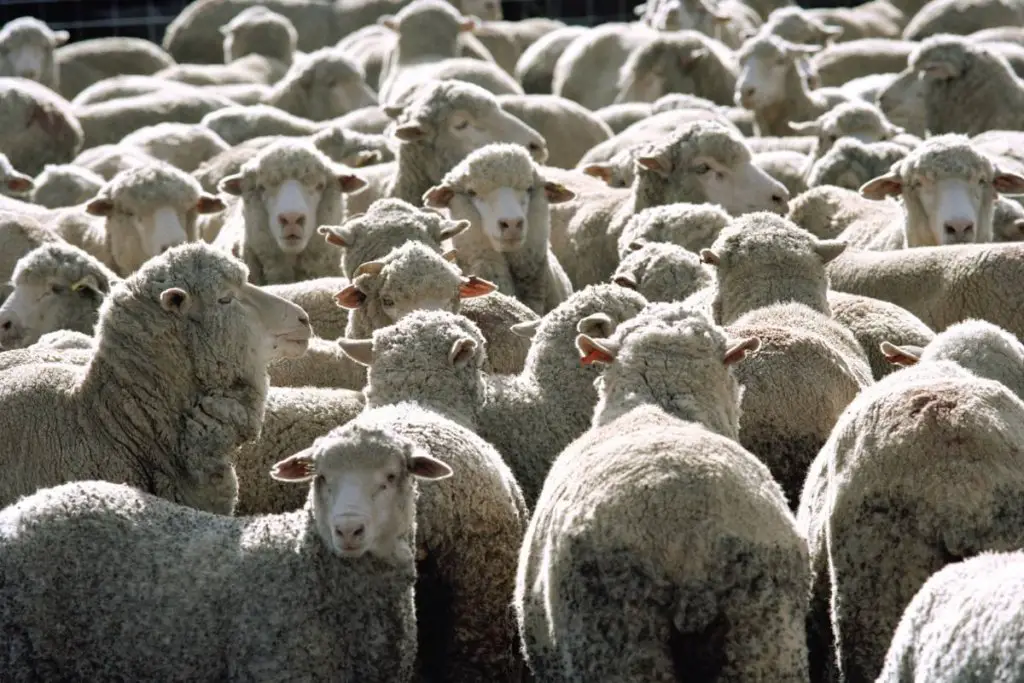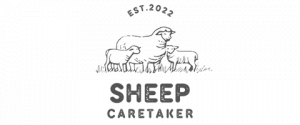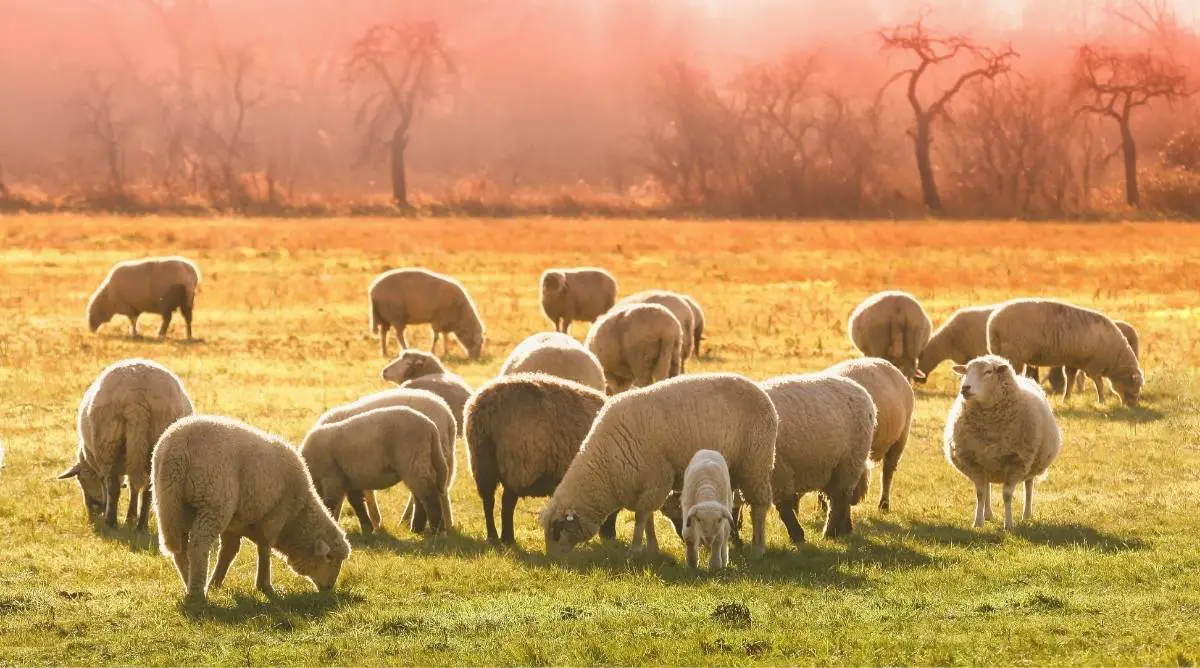When referring to a group of sheep, the most appropriate term to use is "flock." The term "herd" is sometimes used to describe a larger group of sheep. Other terms for groups of sheep include "drove" and "fold."
Table of Contents
What is a group of sheep called?
| Term | Meaning |
| Flock | Most common way to refer to a group of sheep |
| Herd | Refers to large numbers of sheep on farms or ranches grazing in open spaces |
| Drove | Synonym of “herd” |
| Fold | A group of sheep in a pen |
A group of sheep is most commonly called a flock.
- Flock: Usually, the term flock describes a relatively small number of sheep.
- Herd: Some farmers with bigger farms or ranches describe their sheep as a “herd.” Herding is also a verb describing the movement of a group of sheep, often from one grazing area to another.
- Drove: A drove is a large group of sheep, and is used in a similar context to the word “herd.” Similarly, droving is the act of herding sheep from one area to another.
- Fold: A fold refers to a group of sheep in a pen.
What’s the difference between a flock and a herd of sheep?

A flock is a term used by farmers to refer to a small group of sheep grazing on their sheep farm.
Meanwhile, a herd is usually used in the context of a large sheep farm consisting of hundreds or thousands of sheep.
While flocks typically graze on tightly fenced-in areas, herds are often used to describe a group of sheep grazing on a larger, open pasture.
What’s the origin of these words?
In the English language, there are many “collective nouns” to refer to different groups of animals.
For example, a group of lions is called a “pride” and a group of crows is called a “murder.” The words “flock,” “herd,” “drove,” and “fold” are often used to refer to livestock like sheep and cattle.
The word “flock” came from the Old English word “flocc,” which referred to a group of persons, a troop, or a company. It derives from older languages such as the Old Norse “flokkr,” meaning “a crowd, troop or a band.”
The word “herd” first originated from the Proto-Germanic word “herdo,” which translates to the Old English word “heord,” meaning a “company of domestic animals.” It has since been in use as early as the 12th century.
Drove came from the word “drifan” which means “to drive” in Old English.
The term “fold” first originated from Old English-Germanic “falud,” which means “a stall, stable, or a cattle pen.” That’s why when referring to a small flock or herd of sheep as a fold, the term imples that you’ll keep them in a fenced shelter or a pen to prevent attacks from predators.
The words “flock” and “herd” are the most commonly used collective nouns for a group of sheep.
What other animals are called a flock?
Other groups of animals referred to as a “flock” include birds and goats.
Sheep, goats, and birds are generally called a flock because they are sociable animals and tend to move as one.
Collective nouns for other groups of animals
Other interesting collective nouns for animals include:
- Pride of lions
- Murder of crows
- Shrewdness of apes
- Colony of bats
- Quiver of cobras
- Bask of crocodiles
- Tower of giraffes

